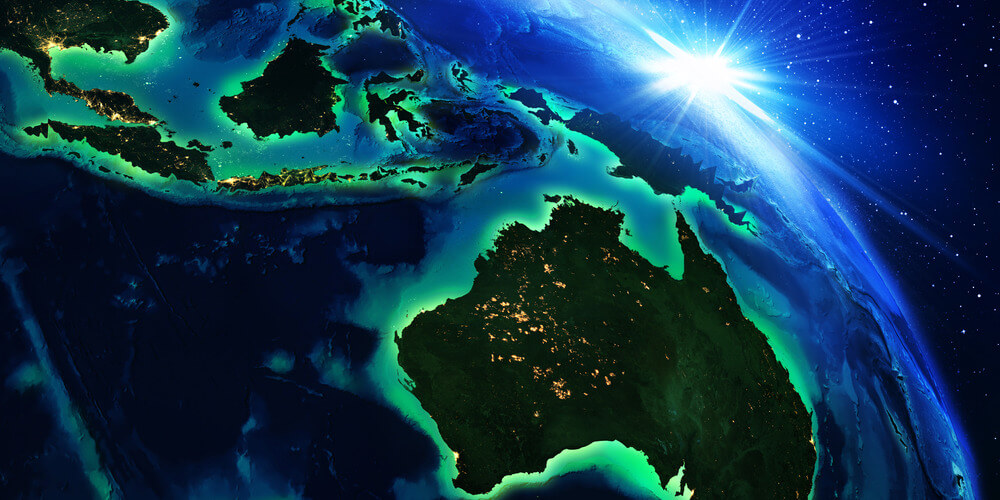Australia’s proximity to Southeast Asian Muslim communities means there are unexplored opportunities for the country to enter the halal food sector.
Sydney: The Australian food export sector is targeting Malaysia’s rapidly growing certified halal food market following a memorandum of understanding (MoU) signed between the Australian Trade and Investment Commission (Austrade) and Malaysia’s Halal Development Corporation (HDC).
Signed in February, the agreement should benefit Australian exporters with both organisations concurring to share information and actively collaborate in developing partnerships between Malaysian and Australian companies.
Austrade foresees growing opportunities for Australian businesses in Malaysia given the Southeast Asian country has rising disposable household income and an increasing desire for high-quality products and services. Malaysia’s gross domestic product (GDP) per head was $10,412 in 2020.
Australian products already command a “perception premium” in the Malaysian market said Paul Sanda, Austrade senior trade and investment commissioner to Malaysia and Brunei.
“They are heavily sought after due to their freshness and quality.”
The foodservice and hospitality industries, and local manufacturers, are to look seriously at sourcing Australian products. In 2020, Australia's exports of goods and services to Malaysia totalled Australian dollars AUD10 billion ($7.3 billion), according to Sanda and data service Trading Economics, but fell to about AUD6.3 billion ($4.7 billion) last year.
The largest food export segments expected to benefit from halal certification are Australian beef and sheep meat, cereals, juices and dairy. Through the agreement, the Australian government and food sector will seek to tap a global halal goods and services market DinarStandard projects to reach $2.8 trillion by 2025, as Muslims’ spending levels across all economic sectors recover from the post-pandemic slump.
Home to around 240 million Muslims, the Association of Southeast Asian Nations (ASEAN) region provides substantive business opportunities for halal food items. In particular, among Malaysia’s 16 million Malay Muslims there is “a significant pool of engaged consumers with evolving eating habits and growing consumption of imported food and beverages”, according to the United States Department of Agriculture June 2021 report. Malaysia’s Halal Development Corporation says the Australian deal will formalise and smooth trade flows in products between the two countries.
“Our agreement is not only about sharing business insights and commercial partnership opportunities,” Hairol Ariffein, HDC CEO, said. “Importantly, it will include projects to enhance broader trade imperatives; exchange market intelligence and know-how; (stimulate) potential investment in halal industry parks, training and consultancy services and cooperation on dedicated halal business events.”
Sanda added: “With the Malaysian government committed to developing Malaysia as a leading halal industry centre of excellence and manufacturing hub, Australian businesses are well-placed to supply halal certified ingredients and raw materials to both the manufacturing and food service sectors. Australia’s world-class food security frameworks and supply chain integrity are integral to supporting these initiatives.”
Muhammad Khan, a food technologist and pharmacist and CEO of Halal Australia, also believes Malaysia’s halal market is “a profitable (one) for the Australian food sector.” He highlighted opportunities especially for Australia-produced halal meat and processed food, but sees potential for exporters of pharmaceuticals and cosmetics too.
“Australia has the reputation for producing some of the finest quality food products in the global food sector,” he told Salaam Gateway.
Khan said Halal Australia already receives queries regarding the halal market in Malaysia.
“From the amount of email and telephone correspondence, it appears the Australian food sector has been actively targeting the market.”
Of course, with Malaysian halal certification being among the most advanced worldwide, Australian suppliers must work hard to fulfil halal certification. The Department of Islamic Development Malaysia (JAKIM) is Malaysia’s primary certification agency and it has appointed foreign halal certification bodies (FHCB) to facilitate the process for companies based outside of Malaysia.
These authorised representatives will confirm the manufacturing process adheres to halal standards. In Australia there is a well-established regulatory framework for halal certification with seven Malaysia-approved certifying bodies effective 1 December 2020, such as the Islamic Co-ordinating Council of Victoria (ICCV) and Halal Certification Authority Australia (HCAA).
Among the Malaysian companies already exporting halal food to Malaysia is the Holstein Milk Company, based in Johor Bahru. Holstein sells Australian milk and manufactures nut-based milks using Australian ingredients. Malaysia-based Captain Oats also repacks Australian oats for its product range.
Major multinationals such as Nestlé Australia are using halal standards to promote their products, even if they do not use dedicated halal manufacturing procedures. Nestlé uses raw materials of Australian origin such as wheat and malt extract.
Nestlé Australia spokesperson said there was no religious ritual involved in making these products, but stressed the company sold products that have always been inherently halal.
“It is important to make sure such statements are correct. Malaysia’s population is younger and more tech-savvy than many Western countries. Its high internet coverage means consumers are strongly influenced by social media, often as a primary source of information.”
Such platforms maybe used in Melbourne, this August/September (2022), when the annual HDC-organised World Halal Conference will be held outside Malaysia for the first time. The planned two-day event will feature panel discussions, halal thought leaders and business networking opportunities where Australian firms can get a first-hand account of the halal economy.
© SalaamGateway.com 2022. All Rights Reserved


Barbara Barkhausen